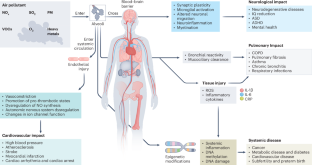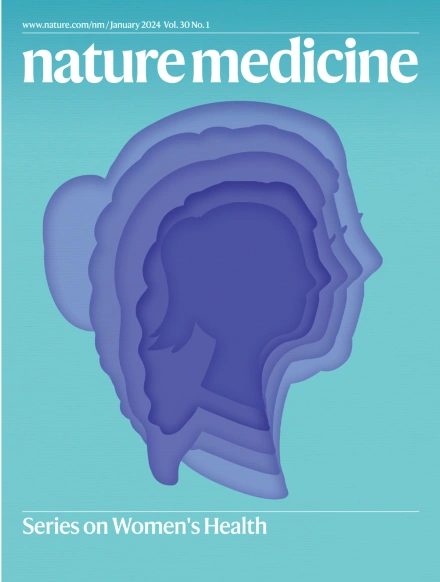空气污染干预措施促进健康
IF 50
1区 医学
Q1 BIOCHEMISTRY & MOLECULAR BIOLOGY
引用次数: 0
摘要
空气污染是一种主要的环境健康风险,每年夺去数百万人的生命,影响整个生命周期的健康。尽管人们普遍认识到与空气污染有关的疾病负担,但消除空气污染仍然具有挑战性。许多地区的基本生存依赖化石燃料或生物质能,而努力减少空气污染的发达经济体面临着持续的障碍。气候变化使干预工作复杂化,因为气温上升和极端天气(例如,野火、沙尘暴)加剧了空气污染。在日益恶化的气候条件下,传统的干预措施可能会动摇,需要综合的缓解、适应和有复原力的基础设施才能产生环境和健康效益。在这篇叙述性评论中,我们评估了国家、社区和个人层面的多层次干预措施,讨论了哪些有效,哪些无效,并提供了说明性案例。单一的干预是不够的;效力取决于环境,由执法和公平决定。需要采取综合战略,解决空气污染的根本原因,减轻其对健康的破坏性影响。本文章由计算机程序翻译,如有差异,请以英文原文为准。


Air pollution interventions for health
Air pollution, a leading environmental health risk, claims millions of lives yearly, impacting health across the lifespan. Despite widespread acknowledgement of air pollution-related disease burdens, eliminating air pollution remains challenging. Many regions are reliant on fossil fuels or biomass for basic survival, and developed economies striving to reduce air pollution face persistent barriers. Climate change complicates intervention efforts, as rising temperatures and extreme weather (for example, wildfires, dust storms) intensify air pollution. Traditional interventions may falter under worsening climate conditions, requiring integrated mitigation, adaptation and resilient infrastructure to yield environmental and health benefits. In this narrative Review, we evaluate multilevel interventions at the national, community and individual levels, discussing what works and does not work, with illustrative case examples. No single intervention suffices; efficacy depends on context, shaped by enforcement and equity. Integrated strategies are needed to address the root causes of air pollution and mitigate the devastating health impacts. The detrimental impact of air pollution on health is well known, but why is it so difficult to control? This Review evaluates multilevel interventions in the context of the evolving climate crisis and discusses what works and does not work.
求助全文
通过发布文献求助,成功后即可免费获取论文全文。
去求助
来源期刊

Nature Medicine
医学-生化与分子生物学
CiteScore
100.90
自引率
0.70%
发文量
525
审稿时长
1 months
期刊介绍:
Nature Medicine is a monthly journal publishing original peer-reviewed research in all areas of medicine. The publication focuses on originality, timeliness, interdisciplinary interest, and the impact on improving human health. In addition to research articles, Nature Medicine also publishes commissioned content such as News, Reviews, and Perspectives. This content aims to provide context for the latest advances in translational and clinical research, reaching a wide audience of M.D. and Ph.D. readers. All editorial decisions for the journal are made by a team of full-time professional editors.
Nature Medicine consider all types of clinical research, including:
-Case-reports and small case series
-Clinical trials, whether phase 1, 2, 3 or 4
-Observational studies
-Meta-analyses
-Biomarker studies
-Public and global health studies
Nature Medicine is also committed to facilitating communication between translational and clinical researchers. As such, we consider “hybrid” studies with preclinical and translational findings reported alongside data from clinical studies.
 求助内容:
求助内容: 应助结果提醒方式:
应助结果提醒方式:


